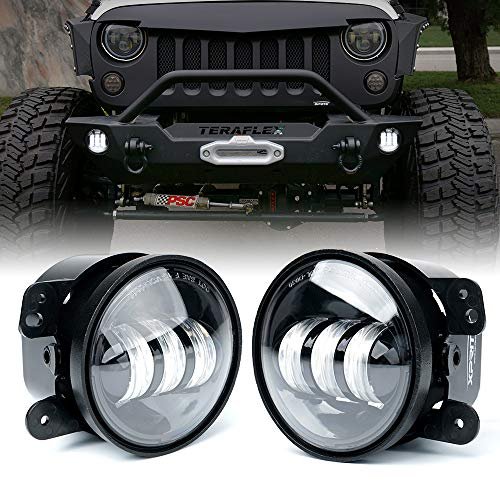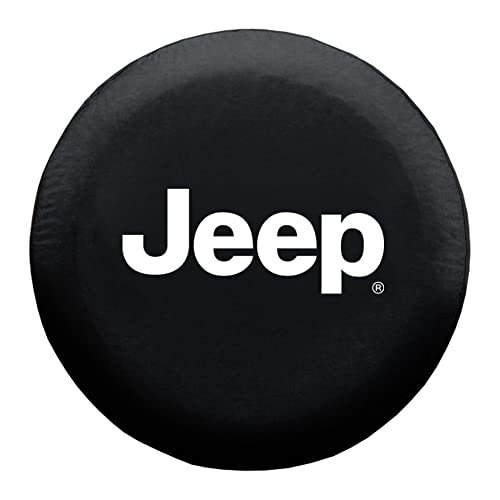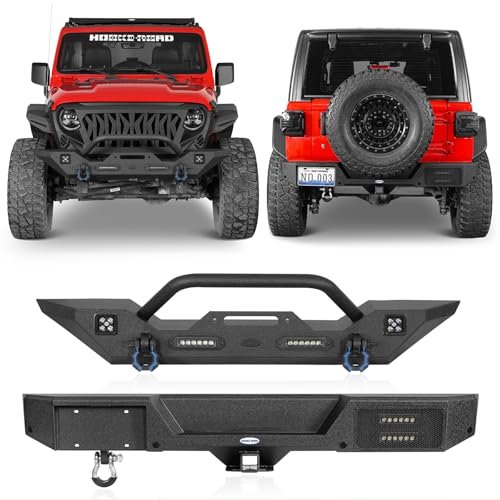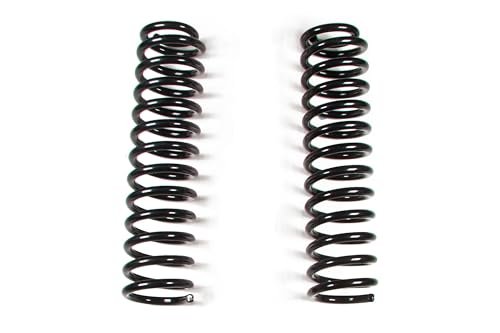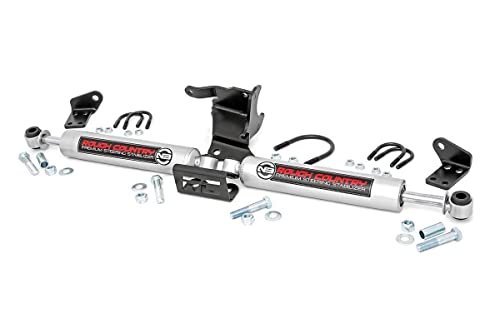If your Jeep is squeaking when you turn, it could be due to worn-out suspension components or a loose belt.
Common Causes Of Jeep Squeaking When Turning
Jeep squeaking when turning can be a frustrating problem to deal with. There are several common causes that can lead to this issue. One possible cause is worn or damaged ball joints. Ball joints are important components of the suspension system that connect the control arms to the steering knuckles. Over time, these ball joints can wear out or become damaged, leading to squeaking noises when turning the Jeep.
Another potential cause of the squeaking noise is faulty steering system components. The steering system of a Jeep consists of various components such as the steering column, power steering pump, and tie rod ends. If any of these components are worn or damaged, they can cause squeaking sounds when the Jeep is turning.
In addition, insufficient lubrication in the suspension system can also be a culprit. The suspension system of a Jeep relies on proper lubrication to operate smoothly. If there is a lack of lubrication in the system, it can cause friction and, ultimately, squeaking noises when turning the Jeep.
If you are experiencing a squeaking noise when turning your Jeep, it is important to have it inspected by a qualified mechanic. They will be able to diagnose the exact cause of the issue and recommend the appropriate repairs to resolve the problem.
Worn Or Damaged Ball Joints
| Symptoms of Worn or Damaged Ball Joints | Causes of Ball Joint Wear and Damage | Importance of Regular Ball Joint Inspection and Maintenance |
|---|---|---|
| – Squeaking or creaking noises while turning – Uneven tire wear – Vehicle pulling to one side while driving | – Lack of lubrication – Excessive wear and tear – Accidental impact or damage | – Prevent future suspension problems – Ensure vehicle safety – Extend the lifespan of ball joints |
When your Jeep starts squeaking every time you turn, it could be a sign of worn or damaged ball joints. Ball joints are crucial components of your vehicle’s suspension system and if they become worn or damaged, they can cause several issues. Some common symptoms of worn or damaged ball joints include squeaking or creaking noises while turning, uneven tire wear, and the vehicle pulling to one side while driving.
There are various causes of ball joint wear and damage, including lack of lubrication, excessive wear and tear, and accidental impact or damage. It is important to regularly inspect and maintain your ball joints to prevent future suspension problems, ensure vehicle safety, and extend the lifespan of the ball joints.
Faulty Steering System Components
Is your Jeep squeaking when you turn? The culprit behind this annoying noise is often a faulty steering system component. Identifying and inspecting these components is the key to resolving the issue.
Common steering system issues that can lead to Jeep squeaking include worn-out bushings, damaged tie rods, and a failing power steering pump. Inspecting these components for signs of wear and tear, such as loose or cracked bushings, play in the tie rods, or leakage from the power steering pump, will help pinpoint the source of the squeak.
Once you have identified the problematic component, there are repair and replacement options available. For example, replacing worn-out bushings or damaged tie rods can eliminate the squeaking. In more severe cases, you may need to replace the entire power steering pump.
Correcting the issue with your Jeep’s squeaky steering system will not only enhance your driving experience but also ensure the safety and reliability of your vehicle.
Insufficient Lubrication In Suspension System
Sufficient and proper lubrication is crucial for a Jeep’s suspension system to function smoothly. The suspension system comprises various components, such as control arms, bushings, sway bars, and ball joints, that require lubrication to reduce friction and prevent squeaking noises. Insufficient lubrication can cause these components to rub against each other, leading to unwanted noise while turning.
Signs of inadequate lubrication in the suspension system include persistent squeaking or creaking sounds during turns, uneven tire wear, and reduced handling and stability. In order to reduce squeaking, it is essential to properly lubricate the suspension components.
The steps to properly lubricate the suspension system involve identifying the lubrication points, cleaning the components, applying suitable lubricants, and ensuring even distribution of lubrication. Regular maintenance and periodic inspection of the suspension system can help prevent squeaking and maintain optimal performance.
How To Diagnose And Fix Jeep Squeaking When Turning
Jeep squeaking when turning can be a frustrating issue, but with proper diagnosis and fixes, you can resolve it quickly. Start by conducting a visual inspection. Look for any visible signs of wear or damage in the suspension components, such as the bushings, control arms, or tie rod ends. Inspect the steering system, including the power steering pump and fluid level, for any leaks or malfunctions.
Next, perform a road test to observe the squeaking noise. Pay attention to when the squeak occurs, whether it’s during slow or sharp turns. This information can help in pinpointing the cause of the problem, whether it’s related to the suspension, steering, or wheel bearings.
Once you have gathered information from the visual inspection and road test, you can start diagnosing the exact cause of the squeaking. It could be due to worn-out bushings, a loose belt, inadequate lubrication, or damaged components. Based on your findings, you can proceed with appropriate fixes, which may include replacing worn parts, tightening loose connections, or applying lubrication.
Conducting A Visual Inspection
Conducting a visual inspection is a crucial step in identifying the potential causes of squeaking in your Jeep when you turn. By carefully examining the various components, you can spot visual clues that may indicate worn or damaged parts.
Step-by-step Guide to Visual Inspection of Jeep Components:
| 1. Check the Suspension System: | Inspect the suspension system, including the shocks, struts, and control arms. Look for signs of leakage, corrosion, or damage. |
| 2. Examine the Steering Components: | Inspect the steering linkage, tie rods, and ball joints. Look for any signs of play, looseness, or excessive wear. |
| 3. Inspect the Brakes: | Check the brake calipers, pads, and rotors. Look for signs of uneven wear, damage, or sticking. |
| 4. Examine the Wheel Bearings: | Inspect the wheel bearings for any signs of wear, play, or roughness when rotating the wheels. |
| 5. Check the Drive Belt: | Inspect the drive belt for any signs of cracks, fraying, or looseness. Make sure it is properly tensioned. |
Identifying Potential Causes of Squeaking through Visual Clues:
During the visual inspection, keep an eye out for common visual indicators of worn or damaged components. These may include rust, corrosion, leaks, loose or missing bolts, worn-out bushings, and excessive play. Pay close attention to any unusual wear patterns or signs of rubbing or scraping.
By conducting a thorough visual inspection, you can gather valuable information to help diagnose the cause of the squeaking in your Jeep when you turn. Remember to seek professional assistance if you are unsure or if repairs are needed.
Performing A Road Test
Performing a road test is an essential step in diagnosing why your Jeep is squeaking when you turn. It allows you to listen for specific squeaking sounds and observe the handling and suspension behavior of your vehicle. To conduct a road test:
1. Find a Quiet Location:2. Start the Engine:3. Drive Slowly:4. Listen Carefully: Pay close attention to any squeaking sounds that may occur. They can help you identify the source of the issue.5. Observe Handling and Suspension: During the road test, observe how your Jeep handles and how the suspension behaves. Look for any signs of unusual or inconsistent behavior.6. Take Notes: Make note of any specific sounds or behaviors that you observe during the road test. These details will be helpful in diagnosing the problem.| Turning Movement | Sound |
|---|---|
| Left Turn | Squeaking Sound |
| Right Turn | No Squeaking Sound |
By following the proper procedure for conducting a road test, you can gather important information to help pinpoint the cause of the squeaking in your Jeep. Remember to be thorough and take notes for reference when troubleshooting or seeking professional assistance.
Diagnosing The Exact Cause Of Squeaking
One of the most common issues experienced by Jeep owners is a squeaking sound when turning. Diagnosing the exact cause of this problem can be crucial in order to address the issue effectively. Begin by inspecting the vehicle for potential causes such as worn-out suspension components and steering components, loose or damaged belts, or insufficient lubrication. Conducting a thorough road test can also help narrow down the potential causes. Pay attention to the specific conditions under which the noise occurs, such as at a certain speed or when the vehicle is cold. Seeking professional help from a mechanic specialized in Jeep diagnostics can provide a more accurate and comprehensive diagnosis. Additionally, utilizing online resources and community forums can offer insight and advice from other Jeep owners who may have encountered and resolved similar issues.
Steps To Prevent Jeep Squeaking When Turning
It can be frustrating when your Jeep starts squeaking every time you turn. However, there are steps you can take to prevent this issue and keep your Jeep running smoothly. Regular maintenance and inspections are key to identifying and addressing any potential problems before they worsen. Lubricating the moving parts of your Jeep’s steering system, such as the steering column and joints, can help reduce friction and minimize squeaking. Additionally, timely replacement of worn or damaged components, such as the tie rod ends or steering rack, is crucial in preventing squeaks. By addressing these issues promptly, you can ensure that your Jeep remains quiet and performs optimally while turning.

Credit: www.brakeandfrontend.com
Regular Maintenance And Inspections
Regular maintenance and inspections are essential for keeping your Jeep in top condition. Following the manufacturer’s recommended maintenance schedule is crucial to prevent and address any issues. By conducting routine inspections, you can detect and address minor problems before they escalate. Squeaking when turning can be caused by various reasons such as worn-out bushings, loose belts, or insufficient lubrication. To troubleshoot the issue, start by checking the power steering fluid level and condition. Inspect the belts for signs of wear and tear. Additionally, examine the suspension components for any damage or signs of wear. If you are unable to identify and resolve the issue, it is highly recommended to seek professional help from a trusted Jeep technician. Remember, proactive maintenance and timely inspections are key to ensuring a smooth and safe driving experience in your Jeep.
Lubrication Of Moving Parts
When your Jeep starts squeaking when you turn, it can be a sign that certain components need lubrication. Identifying these components is crucial in order to effectively address the issue. Common parts that may require lubrication include the suspension system, steering components, and wheel bearings. Using the correct types of lubricants is essential to ensure smooth operation and prevent further damage. For instance, lithium-based or silicone-based grease is typically suitable for suspension and steering components, while high-temperature wheel bearing grease is more appropriate for wheel bearings.
Applying lubrication properly can also help reduce squeaking. It is important to clean the surfaces before applying grease or oil. This ensures that the lubricant can adhere well and provide optimal lubrication. Additionally, applying lubrication to the entire surface of the moving part helps to distribute it evenly and reduce friction. Regular maintenance and lubrication of moving parts can extend their lifespan and prevent unnecessary noise and wear.
Timely Replacement Of Worn Or Damaged Components
There can be several reasons why your Jeep may be squeaking when you turn. One of the most common causes is worn or damaged components. It is important to recognize the signs of component wear and damage, such as unusual noises or reduced performance. Promptly replacing these worn or damaged components is essential to maintain the optimal performance of your Jeep.
When sourcing replacement parts, it is crucial to select high-quality options to ensure durability and reliability. Investing in reputable brands and genuine parts will help prevent further issues down the line. Additionally, engaging a trusted and experienced mechanic is key for professional installation. Their expertise and knowledge will ensure that the replacement parts are properly installed, reducing the likelihood of future squeaking.
Frequently Asked Questions On Why Is My Jeep Squeaking When I Turn
Why Does My Jeep Make Noise When I Turn?
Your Jeep makes noise when you turn due to potential issues with the steering system or components like ball joints and power steering fluid. It’s essential to get it checked by a professional mechanic to identify and fix the problem.
Regular maintenance can also prevent such noise.
Why Does My Car Make A Squeaking Sound When I Turn?
Your car may squeak when turning due to worn-out or loose belts, a malfunctioning power steering system, low power steering fluid, or damaged suspension components. It’s recommended to have a professional mechanic inspect your car to identify and fix the specific issue causing the noise.
How Do I Stop My Car From Squeaking When I Turn?
To stop your car from squeaking when you turn, check the power steering fluid level, as low levels can cause noise. If the fluid is fine, have your suspension and steering components inspected for wear and lubricate them if needed.
What Would Make A Jeep Squeak?
Jeep squeaks can be caused by a variety of reasons, such as worn-out brake pads, loose belts, dry ball joints, or suspension issues. Regular maintenance and inspections can help identify and fix the problem.
Conclusion
If you have been wondering why your Jeep is squeaking when you turn, it could be due to several reasons. From worn-out belts to a loose steering component, identifying the root cause is crucial for prompt repairs. Regular maintenance and prompt attention to such issues will help ensure the smooth functioning of your vehicle.
Addressing these concerns promptly will not only reduce the risk of further damage but also enhance your driving experience. Remember, a well-maintained Jeep is a reliable and safe one.


